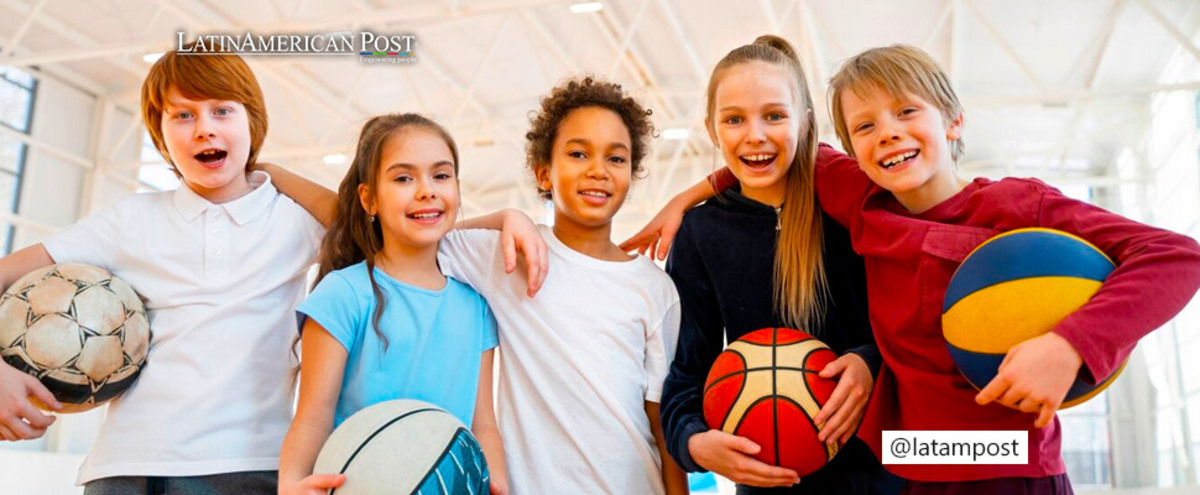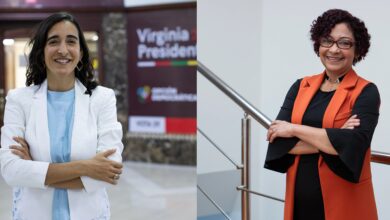Olympism365: Using sport to advance the education and development of young people in Latin America
On the sidelines of the Pan American Games Santiago 2023, a series of events shone a spotlight on some of the ambitious and far-reaching programs in Latin America initiated under the umbrella of Olympism365 – the International Olympic Committee (IOC)’s focused strategy to use and promote sport as an enabler for the United Nations’ Sustainable Development Goals (UN SDGs).

Photo: Freepik
IOC News Agency
Escucha este artículo
Leer en español: Olympism365: Utilizar el deporte para avanzar en la educación y el desarrollo de los jóvenes en América Latina
The positive impact of sport and Olympism is being brought to young people and communities in Latin America through a range of partners in the region that the IOC is working with to deliver sport-based initiatives to increase young people’s access to quality education, employment, and entrepreneurship opportunities, and to advance gender equality and inclusion.
IOC President stresses the vital role of sport and the need for collective action
Among the initiatives featured were various projects within the Olympism365 Sport, Education, and Livelihoods portfolio that use sport to strengthen the transferable skills of young people at risk of social exclusion, improving their prospects in education and employment.
On 21 October, an event co-organized by the IOC through Olympism365 and in collaboration with Panam Sports, portfolio lead Fundación SES and its local implementing entity ACHNU, demonstrated the concrete impact of this collective action, highlighting the transformative power of sport for sustainable development.
In Latin America, these ongoing community sports programs target 50,000 young people across 15 countries until 2025. Additionally, the training of 6,000 practitioners, teachers, youth workers, and policy officials focuses on raising awareness and building capacity for sport, education, and livelihood. This builds on the 1,200 Community of Practice members already engaged in 2023, the over 9,000 young people reached to date through community sports programs, and the more than 680 professionals now trained in using sport as a tool for social transformation.
Attending the event, IOC President Thomas Bach further underlined the contribution of sport to achieving the SDGs and the importance of this collaborative approach.
“Sport is much more than a goal in itself – it is a tool to achieve so many other goals,” said President Bach in his address to the gathering.
“And none of these goals can be attained by only one entity. In this, the Olympic motto is more relevant than ever: we can only achieve the SDGs faster, we can only aim higher with our contribution to reach these goals, and we can only become stronger in this worldwide community striving to achieve these goals if we are standing together. Thank you for standing together and keep going strong.”
Alongside President Bach, a broad range of partners from the Olympic Movement, government, regional development organizations, and civil society attended the event, including Jaime Pizarro, the Chilean Sports Minister; Neven Ilic and Jimena Saldaña, the Panam Sports President and Secretary General; representatives from 25 NOCs; and delegates from UN Women, the Latin American Development Bank (CAF), the Ibero-American Sports Council and the Organization of Ibero-American States.
A Blueprint for Positive Change
Olympism365 delivery entities from eight countries were also in attendance, including Forge Foundation, which is active across Argentina, Chile, Colombia, Ecuador, Mexico, Peru, and Uruguay, and Demà Jovem by Renapsi, which delivers sport for development programs to young people across Brazil. These organizations and others are joining forces, building on their respective areas of expertise so that thousands of young people across the region can use sports to strengthen the skills and competencies they need to be better prepared for the future.
Fundación SES – Solidarity, Education and Sustainability, a non-profit organization that specializes in programs that promote social, educational, economic, and civic inclusion among young people across Latin America – is leading the delivery of Olympism365’s Sport, Education, and Livelihoods portfolio in Latin America and the Caribbean.
“We know that sport is a transformative tool that enables the active participation of young people, promotes their development, and enables us to move towards fairer, more inclusive societies,” said Alejandra Solla, President of Fundación SES. “Our challenge is to work with states, international organizations, universities, and sporting bodies to reach 50,000 young people in our region.”
Innovative financing models for inclusion through sport
The city of Santiago, Chile, is the focus of another new pilot project, entitled Trampolín, which the IOC is supporting through Olympism365. The initiative is designed to improve social inclusion for people living with disabilities in the city and to enhance gender inclusivity by helping girls and women feel safe in sports opportunities made available to them. This new project is being delivered with CAF, UNESCO, and the Chilean Ministry of Sport.
The innovative project was presented during a side event held in the Pan American Village on 22 October 2023 that featured a panel discussion on the relevance of new innovative financing models to increase government investment in sports. The event was held in the presence of the Chilean Sports Minister; the Assistant Director-General of UNESCO, Gabriela Ramos; the Vice-Sports Minister of Ecuador, Daniela Quiroz; and the Director of the implementing partner, the Metropolitan University in Science and Education in Santiago, Eliza Araya.
Cross-regional knowledge sharing and capacity building
As part of the Gender Equality through Sport Bridging Project, a partnership between UN Women and the IOC through Olympism365, on 23 October 2023 in Santiago, UN Women held a dialogue with representatives of governments, sports organizations, athletes, and civil society to promote strategies to prevent violence and discrimination against girls and women in – and through – sport.
The event featured three panels, debating topics such as gender equality in the sports ecosystem in Latin America and the world, the prevention and elimination of violence and discrimination against women and girls in the sports chain, the power of sport to foster positive social norms; and the importance of the media and communication promoting sports coverage that is free of stereotypes and respectful of women athletes.
Also read: Yulimar Rojas, Nominated For Best Athlete Of The Year: How Do You Vote?
Olympism365: Leveraging sport and Olympism for sustainable development
The IOC’s Olympism365 strategy is a direct response to Recommendation 10 of the Olympic Agenda 2020+5, which calls on the Olympic Movement to strengthen the role of sport as an essential enabler for the UN SDGs. Approved by the IOC Executive Board in October 2021, the strategy is built on partnerships between the IOC and various stakeholders, including Worldwide Olympic Partners, non-governmental organizations (NGOs), government departments, development banks, UN and development agencies, and program delivery organizations.
Olympism365 priority areas reflect the positive role that sport and Olympism can play in society for the SDGs by helping to create healthier and more active communities, equitable, sustainable, safer, and inclusive communities, peacebuilding, and education and livelihoods.




